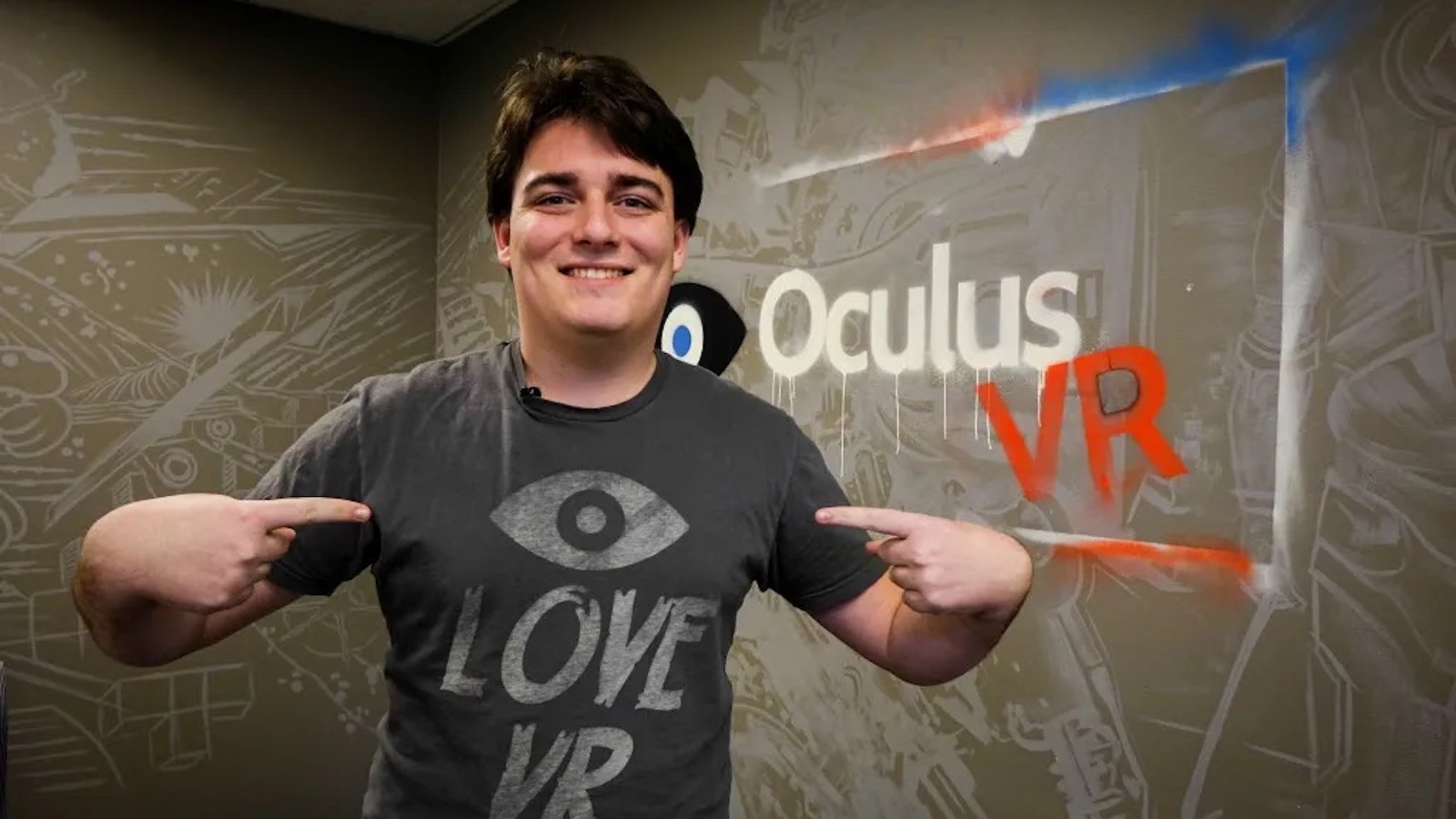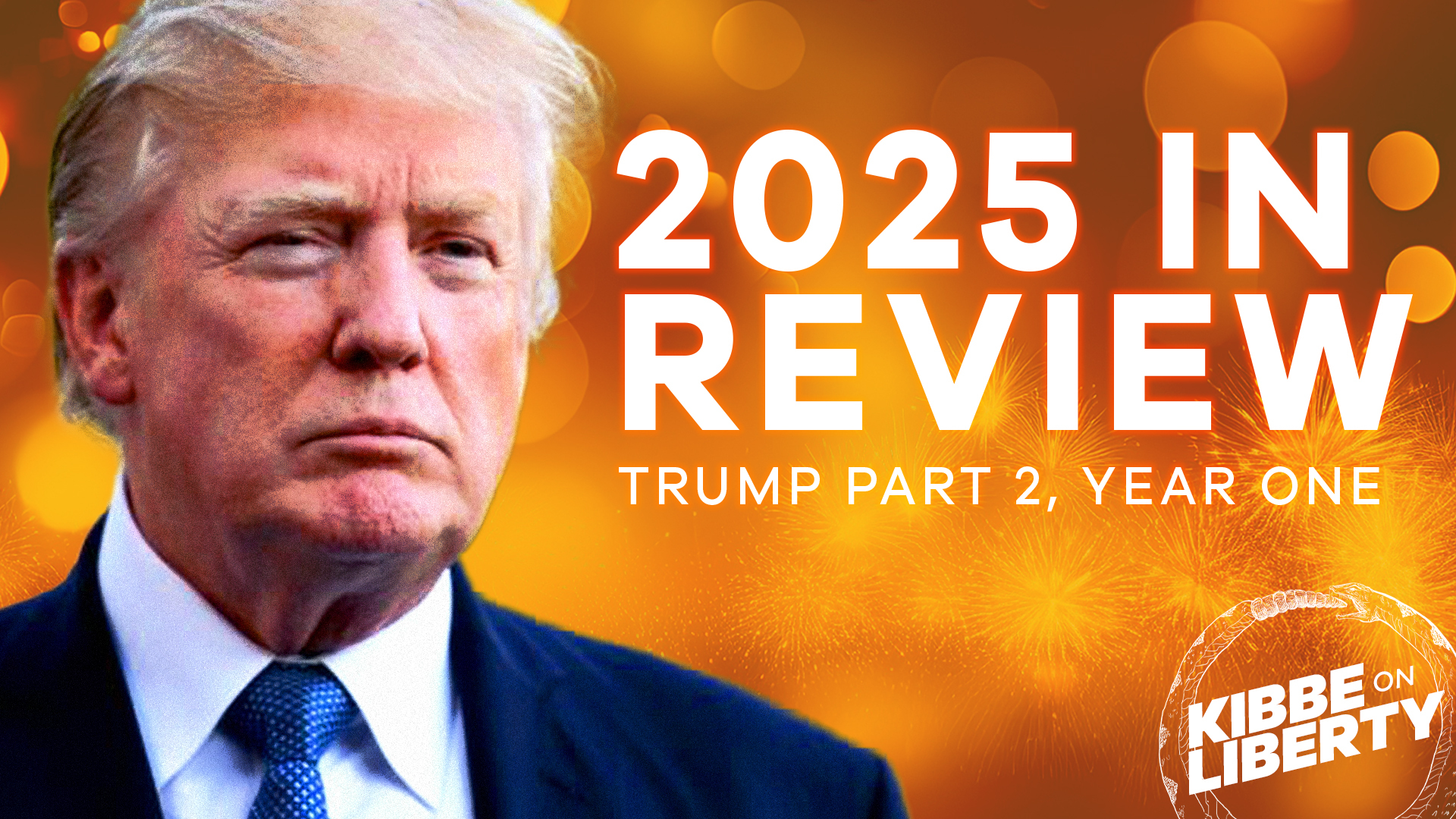
Is It Luck Or Desire for America’s Luck(e)y Warlord?
“If you like Yu-Gi-Oh! and the Power Rangers, can you really do anything except build virtual reality and tools of violence to enact your aims while feeling superior?”
Call me Jamal, ‘cause I feel one with the scapegrace in “Slumdog Millionaire.” Nobody is best fit to answer the above query from American tech titan Palmer Luckey than yours truly. I shall do my level best.
What does a Japanese trading card game featuring ancient Egyptian cryptids and an English-dubbed, whited-washed tokusatsu program have to do with being a ruthless gauleiter?
Everything, according to our next Elon Musk. Luckey, like the battery-car magnate, is a curious wunderkind with enigmatic political beliefs that messily manifest in right-wing trolling. His dip into a bankshot Trump boost (donating ten stacks to an avant-garde MAGA street posse with the mission statement of “sh*tposting in real life”) got him canceled out of a lucrative Facebook gig. From that most poignant human motivator—spite—Luckey re-careered in the most fash-tastic way possible: supplying AI-powered munitions to the Pentagon. From banished to $14 billion—a Horatio Alger hero for the 21st century!
Jeremy Stern of Tablet Magazine provides the definite writeup of Luckey’s slip-station ascent to the top of America’s most money-eating industry: war-profiteering. It’s nothing personal to Luckey—meaning, he doesn’t seem to have any genuine ideological commitment to keeping Uncle Sam the king of the geopolitical hill. He’s simply rebuilding his empire after being summarily defenestrated from his Menlo Park perch by a crying coterie of lib weenies.
But back to his predilection for anime and authority. Luckey’s stock-in-trade wasn’t always wiring deadly whizzers to decapitate humble hajis minding their own in the middle of a dusty Kamdesh field. As Bill Gates before him, he got his start fashioning novel cybertech while living in a trailer, specifically VR headwear. What piqued his interest, besides fulfilling his dream of facing down a Blue-Eyes White Dragon with Exodia the Forbidden One, is the quintessential neckbeard soyjak hobby: chatting on internet message boards. Luckey’s vocation began with “modding” game consoles (translation for those lucky enough to bypass acne and braces: crack open video systems to manually enhance their processing power) before embarking on a magpie-spree of acquiring vision-mutating gizmos and goggles. It was straightforward from there: utilize his cumulative knowledge of computerized environments to create a dreamworld filled with monsters to slay, damsels to be rescued, and adventure to be had.
His breakthrough invention was Oculus Rift: a headset that visually recreates reality for anyone game enough to strap on an eye bridle. It was such a dazzling innovation that Facebook scooped it up for a tidy couple of billion bucks in 2014. From that scrappy acquisition, Mark Zuckerberg and Luckey teamed up to birth a sprawling polygonal Neverland that would invert all of God’s creation as we know it, transporting us to an endless Eden watered by the cool condensation dripping off a million whirring computer servers.
It also went spectacularly and humiliatingly bust. Nobody cared. (Score one for humanity!) The yearly GDP of several African countries went *poof*, disappearing into the unbroken ether of our digitized economy.
Luckey was lucky to have been dismissed from Facebook before the implosion of the smooth, substanceless space he helped engineer. But his desire for otherworld domination hasn’t abated. It’s just been—to reinvoke gamer lingo—modified, or as neoconservatives might say, sublimated, into the higher calling of world destruction. Luckey’s great innovation hasn’t just been in developing cheap AI to guide terrorist combusting armaments. It was severely undercutting the so-called “primes”—the five biggest war contractors that shadow Washington, DC with their stately compounds.
Therein lies the danger of an unmitigated thrill for unreality. Luckey went from every nerd’s wet dream of simulating an all-out brawl between halberd-toting beasts to producing incendiary payloads on autopilot. The through line—digital mimicry of violence to real incinerated flesh—may seem blurry, but it’s clearer when you consider the demand to transcend perceived limits. In Luckey’s own words: “I am going to do whatever I think the right thing is, and I’m not to be bound by… constraints.”
How very American! Huck Finn couldn’t have said it better. And yet, that very refusal to bow to any outside rule is what gave rise and lent ideological cover to the notion that the United States must supervise global affairs. With an arsenal of ICBMs, millions of combat-ready troops, and enough killing power to wipe the world clean of living organisms.
Luckey supposedly finds himself as America’s armer through no fault of his own, as he’s just “doing what I was programmed to do when I was 8 years old.” That is, asserting his control over scenarios that are supposed to be the televised imaginings of men who didn’t touch enough grass growing up. Yet for every blast-cap-tinkerer like Luckey, there are millions of adults who watched every Yu-Gi-Oh! episode and dressed as the Green Ranger for Halloween who aren’t founding the next Northrop Grumman along the banks of the Potomac.
The stars aren’t crossed into a cruel fate. Sometimes a war lord is a war lord because he wants to be.
Free the People publishes opinion-based articles from contributing writers. The opinions and ideas expressed do not always reflect the opinions and ideas that Free the People endorses. We believe in free speech, and in providing a platform for open dialogue. Feel free to leave a comment.



